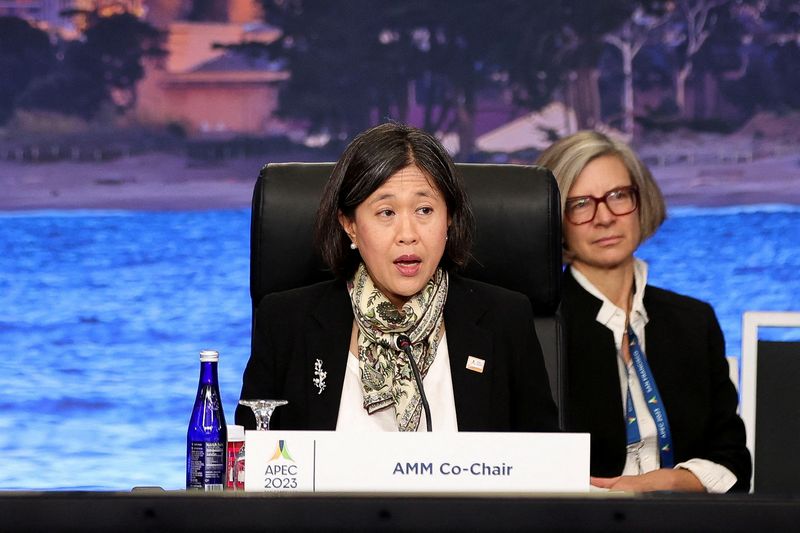By David Lawder
WASHINGTON (Reuters) – The U.S. must take “decisive” action to protect electric vehicles (EVs) from subsidized Chinese competition, U.S. Trade Representative Katherine Tai said on Wednesday as she finalizes a review of Trump-era China tariffs and calls President Joe Biden is considering higher tariffs on Chinese steel imports.
Tai told a US Senate Finance Committee hearing that the US needed to create a level playing field for American workers and that Biden’s call for higher ‘Section 301’ tariffs on Chinese steel imports means that “we are in very, very advanced stages of our mutual cooperation. work, and I expect we will reach a conclusion very soon.”
She said China’s “anti-competitive practices,” including “massive amounts of state aid,” had fueled overproduction of solar panels a decade ago, devastating U.S. manufacturers.
Tai said the US now faces a similar situation with electric vehicles and the auto sector, and that leaving Chinese competition unchecked would result in the US losing the ability to produce those products.
“So we need to take early action, we need to take decisive action, and we need to be very clear about why we’re taking this action,” she said. “We are looking for a level playing field because the current playing field is not level, despite all the talk about free trade.”
Tai added that the current dynamics in the global EV industry are an important factor in the Biden administration’s examination of its trade tools.
USTR announced Wednesday that it had opened a new unfair trade practices investigation into China’s “acts, policies and practices” to dominate the maritime, logistics and shipbuilding industries.
The investigation, which accepts a petition from five U.S. labor unions, will be conducted under Section 301 of the Trade Act of 1974, the same statute that former President Donald Trump used to impose tariffs on hundreds of billions of dollars of Chinese imports in 2018.

Some senators have urged Tai to use the Section 301 tariff review, which was launched in September 2022, to take action to impose higher tariffs on Chinese-made electric vehicles.
Tai told the panel that the completion of the assessment and any adjustments would be presented as a “complete package” and that she had high confidence it would be completed soon.


